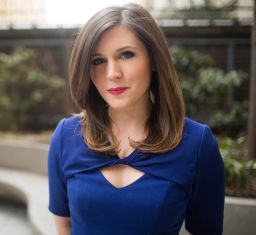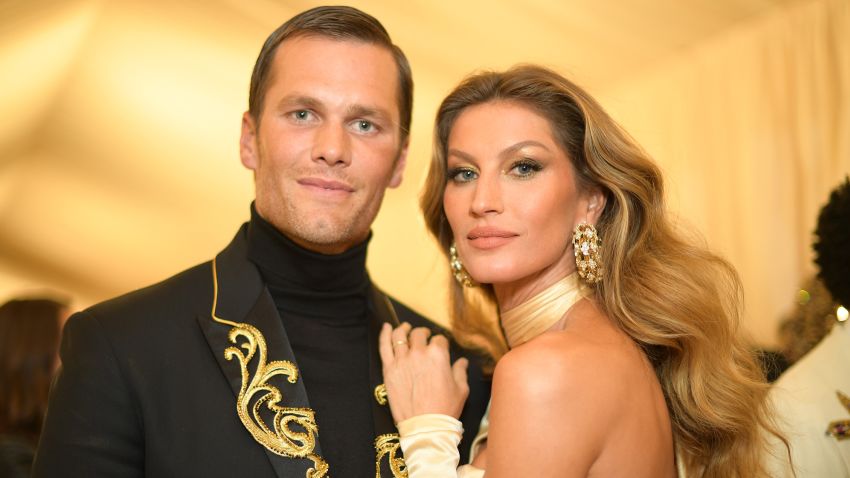Editor’s Note: Jill Filipovic is a journalist based in New York and author of the book “OK Boomer, Let’s Talk: How My Generation Got Left Behind.” Follow her on Twitter. The opinions expressed in this commentary are solely her own. View more opinion on CNN.
After legendary NFL quarterback Tom Brady and supermodel Gisele Bündchen divorced, the media speculation machine went into full force – everyone wanted a reason.

The guesswork is understandable (I, too, want to know why a famous and beautiful couple would split up after 13 years). And given the couple’s celebrity status, the intrusion into a painful and personal moment for them is to be expected, even if it’s also pretty ill-mannered and unkind.
But I suspect the public fascination with the Brady-Bündchen divorce comes from the fact that this couple’s split hits a perfect celebrity sweet spot: These are two people who are absolutely nothing like us, but who nonetheless seem to be splitting up over a familiar gender dynamic that is imminently relatable.
Brady and Bündchen occupied a rare arena of celebrity, insofar as both are among the most recognized people in America, but both are also more often seen than heard. Sure, they did occasional media appearances, but their fame harkens back to what feels like an increasingly bygone age of American celebrity: When people were famous for incredible talent (or, in Bündchen’s case, an incredible beauty and an intuitive sense of how to make the camera capture it).
In our reality-tv-saturated era, where some of the most famous people in America are TikTok teens and self-described “housewives” and the dominant get-famous-quick scheme seems to be to radically overexpose yourself on social media, Brady and Bündchen cast a far more dignified profile.
We frankly don’t know much about their daily lives (I had to Google how many kids they have), and what we do know – the no-nightshades diet, Brady’s fake newspaper, his elementary-school bedtime – are the kind of “celebrities: they’re not like us” details that make them fascinating and somewhere between aspirational and charmingly batty.
Brady’s apparent reputation as a political conservative and his previous friendliness with former President Donald Trump threatened to bring him down to mere mortal status, at least among his more liberal fans, until he sidestepped Trump’s overtures for public support. Scandal was averted, and the Brady-Bündchen unit maintained their cast-in-gold aura.
But their divorce might just bring them down to the earth in the mind of the public. The general consensus among the speculators seems to be that trouble arose when Brady announced he was retiring, but then didn’t actually retire. Bündchen’s public comments indicate a worry about Brady’s health playing a dangerous sport and a desire – after years of sacrificing so that he could thrive professionally – for him to spend more time with their family.
For a whole lot of heterosexual couples, this dynamic is a familiar and frustrating one. The woman who steps back to care for children and make sure her husband succeeds – and the husband who doesn’t quite seem to appreciate that sacrifice and continues to push professionally far past when he needs to, at the expense of his family.
For much of the Brady-Bündchen marriage, both have been at the top of their respected fields: Bündchen is one of the most famous supermodels on the planet, and Brady may be the greatest quarterback of all time. But while Bündchen visibly reworked her professional life when she had children, Brady did not. “I deliberately took a step back from modeling in 2015, as I wanted to focus more on my family and personal projects,” Bündchen wrote in her memoir, “Lessons: My Path to a Meaningful Life.”
She certainly didn’t stop working. But she did retire from the runway and focused more on photo shoots. She moved to Boston – not exactly a fashion hub – for Brady’s career, and then again to Florida. And it seems that while she was being patient and waiting for him to retire at a reasonable point in his career, she was also worried about the toll football was taking on his body. “Obviously, I have my concerns – this is a very violent sport, and I have my children and I would like him to be more present,” she told Elle magazine in September. “I have definitely had those conversations with him over and over again.”
Brady, too, has remarked that his wife has taken on the lion’s share of managing their lives so that he can play a sport he loves – but that doesn’t seem to have changed his professional decisions. “I think my wife has, you know, held down the house for a long time now,” Brady said on his podcast last year. “And I think there’s things that she wants to accomplish. You know, she hasn’t worked as much in the last 10, 12 years, just raising our family and kind of committing to being in a life in Boston and then moving to Florida. But that’s an issue, and it’s a very difficult issue to reconcile without just saying, ‘Hey, it’s time to retire.’ And I think there’s, you know, we’re coming to the end here too, so I don’t want to miss any of the kids’ stuff.”
But Brady, unlike his wife, has continued full steam ahead. “I haven’t had a Christmas in 23 years and I haven’t had a Thanksgiving in 23 years,” he said on a recent episode of his podcast. “I haven’t celebrated birthdays with people that I care about that are born from August to late January. And I’m not able to be at funerals and I’m not able to be at weddings.” Last year, Brady said he believes he’s capable of playing until he’s 50 – at which point oldest children (he also has a 15-year-old son with the actress Bridget Moynahan) will be grown.
In her interview with Elle, Bündchen captured a sentiment I imagine feels familiar to a great many married heterosexual women who spent their 30s and 40s holding down the home front and supporting their husband’s careers, only to see their children become more independent and wonder, what’s next? “I’ve done my part, which is [to] be there for [Tom],” Bündchen told Elle. “I moved to Boston, and I focused on creating a cocoon and a loving environment for my children to grow up in and to be there supporting him and his dreams. Seeing my children succeed and become the beautiful little humans that they are, seeing him succeed, and being fulfilled in his career – it makes me happy. At this point in my life, I feel like I’ve done a good job on that.”
But, she added: “I have a huge list of things that I have to do, that I want to do.”
When women undergo this shift in life stage and the related questions of purpose arise, it can be a big transition for a family, and they need their husbands to step up for their aspirations the way women so often step up so that men can get what they want in life. Too often, though, this give-and-take is only a take.
We don’t know what happened behind the closed doors of the Brady-Bündchen household. And it is unlikely that this divorce materialized overnight. Rather, like most marital disunions, it’s likely the result of years of smaller misalignments, disagreements and resentments that eventually coalesced into a leaden lump of unhappiness that outweighed all the other good stuff.
But part of the human fascination with celebrity is projection and aspiration. Celebrities wind up as avatars for our own desires, jealousies, ambitions, and insecurities. We don’t know for sure why Bündchen and Brady split, and we probably never will – it’s possible that each of them might even diagnose different reasons for their marriage’s end. And so what we pull out of their public statements, and the narratives we latch onto, tell us a little bit about their marriage – and a whole lot about the still-unfinished business of equality in American marriages.
Note: This article has been updated to reflect news developments.





















